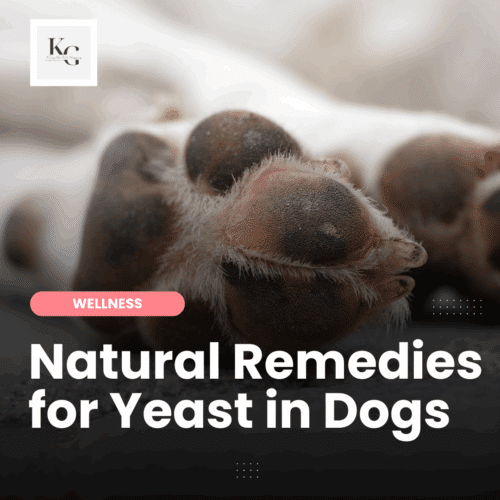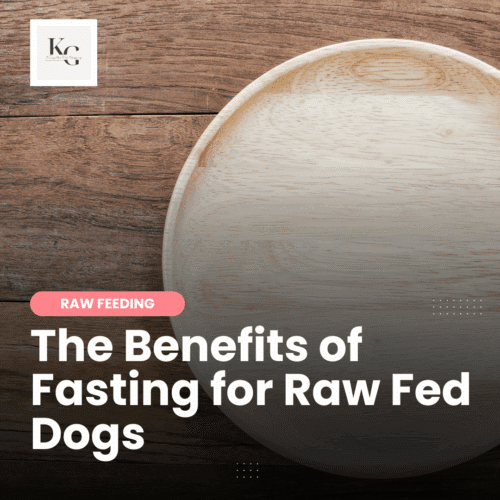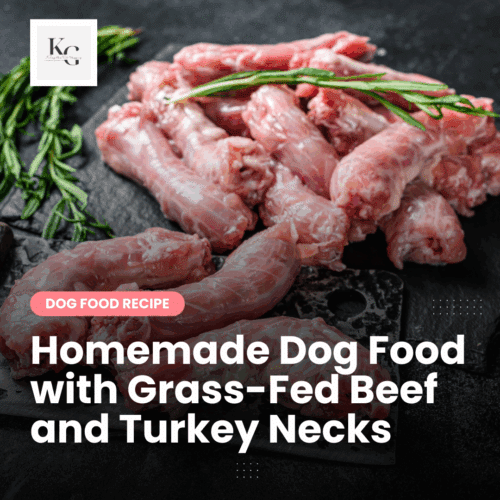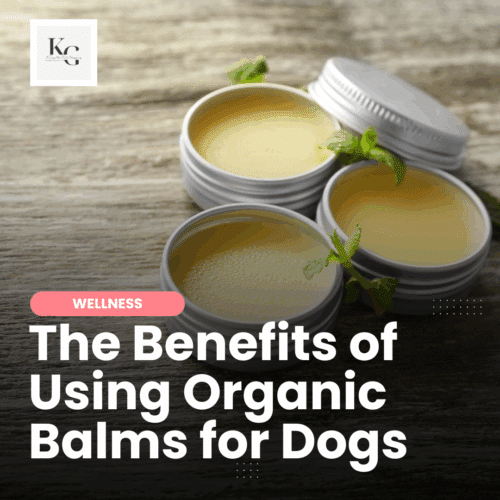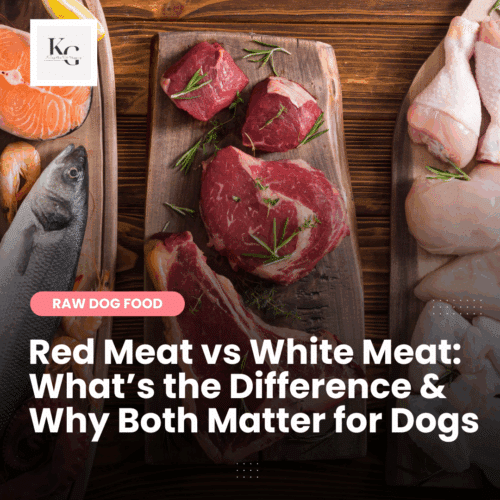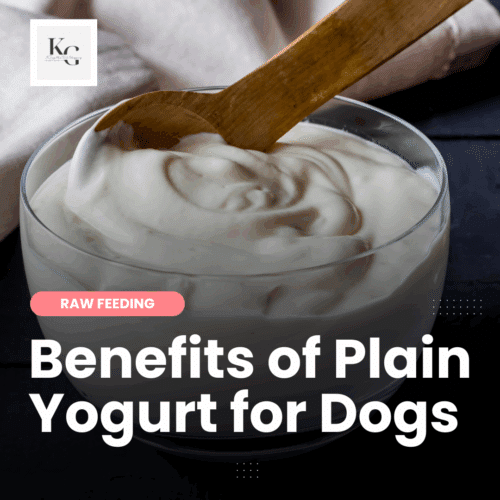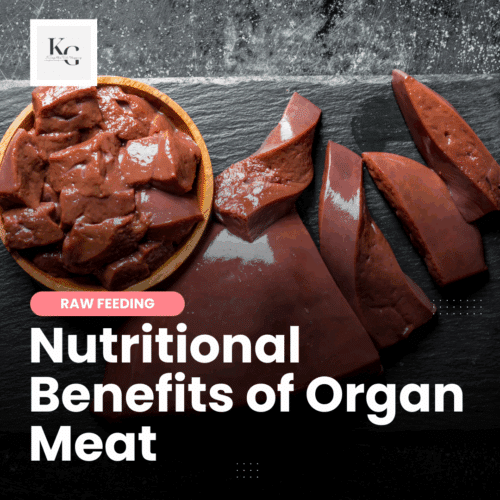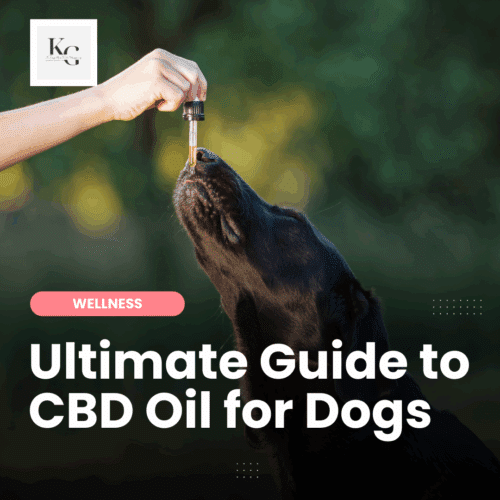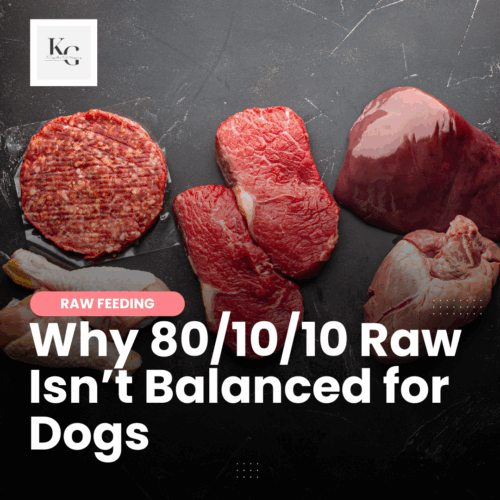Keep the Tail Wagging is supported by pet parents. I occasionally earn a commission (at no additional cost to you) when you click through an affiliate link to one of my favorite products. Thank you for your support. Read More
After years of feeding my dogs a raw diet, I now have a solid grasp on formulating homemade dog food. My focus is on their gut health and immune system and on addressing inflammation. In this article, I'll explore inflammation, including its definition, side effects, and how to reduce it.
What is Inflammation?
We're used to seeing “anti-inflammatory” as a benefit, and it is; however, inflammation is always a negative. It's a natural immune response to injury, infection, or irritation. It's the body's defense mechanism to protect and heal damaged tissues. When a dog's immune system detects a threat, it triggers the release of chemicals that increase blood flow to the affected area, leading to redness, swelling, heat, and pain. This acute inflammation is a normal and necessary process for the body to heal.
On the other hand, chronic inflammation in dogs refers to a prolonged and persistent state of inflammation that can occur when the immune system is continuously activated or fails to shut off after the initial triggering event. Instead of resolving the issue, chronic inflammation can cause damage to healthy tissues over time.
Causes of Acute Inflammation
Causes of acute inflammation in dogs can include:
- Infections: Bacterial, viral, or fungal infections can trigger an immune response and acute inflammation.
- Injuries: Trauma, cuts, burns, or fractures can cause inflammation as part of the healing process.
- Allergies: Dogs can develop allergies to certain foods, environmental allergens (e.g., pollen, dust mites), or substances (e.g., medication, insect bites), which can result in inflammation.
Causes of Chronic Inflammation
Chronic inflammation in dogs can be caused by a variety of factors, including:
- Persistent infections: Certain infections, such as periodontal disease or long-term skin infections, can lead to chronic inflammation.
- Autoimmune diseases: Conditions like autoimmune arthritis, inflammatory bowel disease, or lupus can cause the immune system to malfunction and trigger ongoing inflammation.
- Obesity: Excess body fat can promote inflammation in dogs, leading to chronic low-grade inflammation throughout the body.
- Environmental factors: Exposure to toxins, pollutants, or certain chemicals can contribute to chronic inflammation.
- Poor diet: Dogs' diets high in processed foods, unhealthy fats, and low in essential nutrients can lead to systemic inflammation.
Side Effects of Chronic Inflammation
The side effects of chronic inflammation in dogs can vary depending on the affected organs or tissues. Some common side effects may include:
- Persistent pain or discomfort
- Decreased appetite
- Weight loss or gain
- Lethargy or fatigue
- Digestive issues, such as diarrhea or vomiting
- Skin problems, including rashes or recurrent infections
- Joint stiffness or lameness
- Impaired organ function, such as kidney or liver problems
Chronic inflammation can contribute to the development or worsening of various health conditions in dogs, including arthritis, allergies, diabetes, cardiovascular diseases, and certain types of cancer. Therefore, addressing chronic inflammation in dogs is important to prevent long-term health complications. If you suspect your dog has chronic inflammation, consult a holistic veterinarian for a proper diagnosis and treatment plan.
5 Ways to Naturally Reduce Inflammation
Here are five natural methods to help reduce inflammation and their associated health benefits:
1 – Consuming a Fresh Food Diet: A healthy, balanced, fresh food diet is crucial in reducing inflammation in dogs. Foods rich in antioxidants, such as vegetables, sprouts, and microgreens, help fight oxidative stress and reduce inflammation. Omega-3 fatty acids in fatty fish, flaxseeds, and chia seeds have anti-inflammatory properties. Avoiding processed foods, excessive sugar, and carbohydrates can also help manage inflammation by reducing the production of pro-inflammatory substances.
Supplements I give to my dogs to reduce inflammation and support gut health and overall wellness (among other things) are:
- Daily Dawg – Real Mushrooms – an overall wellness supplement I add in the morning.
- MYOS canine muscle formula – excellent for muscle and joint health while reducing inflammation.
- Gussy's Gut – supports a healthy gut, reduced inflammation, and a robust immune system.
2 – Regular Physical Activity: Regular physical activity helps reduce inflammation by supporting a healthy weight, improving circulation, and boosting the production of anti-inflammatory substances called cytokines. Exercise can range from daily walks and jogging to more intense activities like fetch, hiking, or agility. It's essential to start slowly as you adopt a new exercise routine for your dog to prevent injury.
3 – Stress Management: Chronic stress can contribute to inflammation. Our dogs take on our stress, so I've managed my stress through exercise, healthy eating, and fun hobbies. Engaging in stress-reducing activities like outdoor activities (walking, running, fetch), brain games (puzzles and sniffwork), or play dates with dogs we know and trust can go a long way. These practices promote relaxation and trigger the release of endorphins, reducing stress hormones associated with inflammation.
4 – Quality Sleep: Adequate sleep is pivotal in maintaining overall health and reducing inflammation. During sleep, the body repairs and rejuvenates itself, including reducing inflammation. Sleeping isn't an issue for my dogs as they nap during the and get between 7-9 hours of quality sleep every night.
5 – Herbal Remedies: Certain herbs and spices possess natural anti-inflammatory properties. Turmeric, for example, contains curcumin, which has been shown to reduce inflammation. Ginger and garlic are a couple of herbs and spices that can help combat inflammation. However, it's important to use these remedies in moderation and consult an experienced canine nutritionist, especially if your dog has any underlying health conditions or is taking medication.
These natural methods can contribute to an overall healthy lifestyle and help reduce chronic inflammation. As always, consulting with a holistic veterinarian or canine nutritionist is best to personalize your approach and ensure it aligns with your specific needs and circumstances.
Foods with Anti-Inflammatory Properties
It's important to focus on inflammation in dogs before it becomes a chronic issue, and you can do this by incorporating whole foods into your dog's diet:
- Turmeric: Contains curcumin, a compound with potent anti-inflammatory effects.
- Ginger: Contains gingerol, which has anti-inflammatory and antioxidant properties.
- Blueberries: Rich in antioxidants called anthocyanins that combat inflammation.
- Fatty Fish (such as salmon, sardines, and mackerel): High in omega-3 fatty acids, which reduce inflammation.
- Broccoli Sprouts: Contains sulfur compounds that support the body's natural anti-inflammatory processes.
- Spinach: Rich in antioxidants and vitamins, including vitamin E, which help fight inflammation.
- Tomatoes: Rich in lycopene and vitamin C, which possess anti-inflammatory properties.
These foods can be added to any diet, and if you're unsure if these foods are a good fit for your dog, do more research. But don't wait until your dog is sick to address inflammation. Begin with the easy steps – improved diet, more exercise, and reduced stress.



